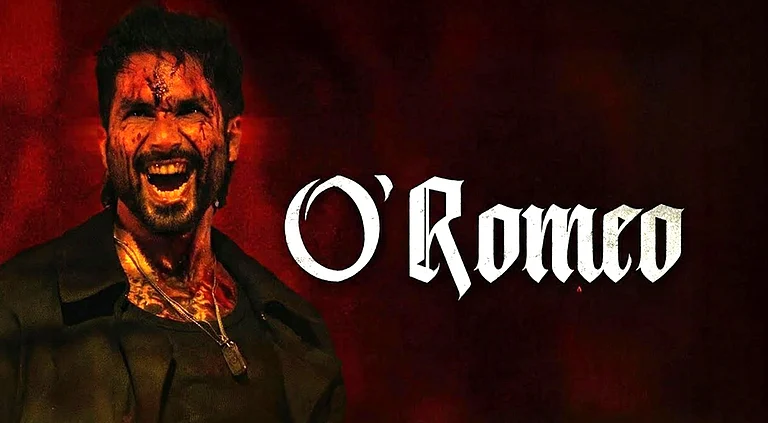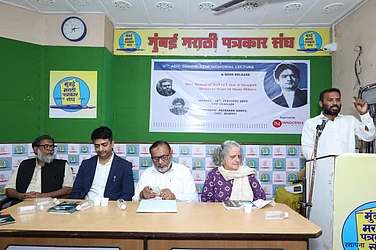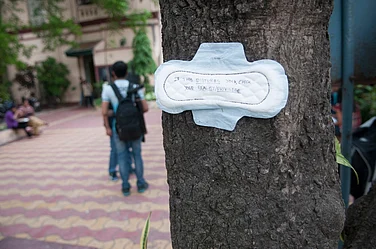After the arrival of Income Tax Department officials at the offices of BBC in Delhi and Mumbai, the BBC said it's "fully cooperating" with the officials.
The Income Tax (IT) officials arrived at BBC offices earlier on Tuesday to conduct "surveys". The officials are looking for documents related to the business operations of London-headquartered BBC.
The IT Department's action comes in the wake of a BBC documentary on Prime Minister Narendra Modi and the 2002 Gujarat Riots that has been condemned by the Modi government and Modi's Bharatiya Janata Party (BJP). The Modi government has banned the documentary in India and has also got its links removed from Twitter and YouTube.
The IT Department's action has led to strong reactions from media bodies and the Opposition parties. The Editors Guild of India (EDI) expressed deep concerns over the IT action and the Congress said there is an "undeclared Emergency" in India.
What we know of the IT action on BBC?
The synchronised surprise action began at 11 am with Income Tax officials reaching the BBC offices in Delhi and in Mumbai. BBC staffers were asked to keep their phones at a particular spot inside the premises and cooperate, officials said.
Officials said the IT officials are looking at documents related to the business operations of the London-headquartered broadcaster and its Indian arms.
Officials said the survey is being carried out to investigate issues related to international taxation and transfer pricing of BBC subsidiary companies. The officials further alleged that the BBC had been served notices in the past but was "defiant and non-compliant" and had significantly diverted its profits.
According to IT rules, transfer pricing "generally refers to prices of transactions between associated enterprises which may take place under conditions differing from those taking place between independent enterprises. It refers to the value attached to transfers of goods, services and technology between related entities". It also refers to the value attached to transfers between un-related parties which are controlled by a common entity.
As part of a survey, the Income Tax department only covers the business premises of a company and does not raid residences and other locations of its promoters or directors.
How has the BBC reacted?
Following the IT Department action, the BBC said it's "fully cooperating" and it hopes the matter is resolved quickly.
The BBC said, "The Income Tax Authorities are currently at the BBC offices in New Delhi and Mumbai and we are fully cooperating. We hope to have this situation resolved as soon as possible."
The BBC is the public broadcaster of the United Kingdom, but is autonomous and independent. It's not dependent on government revenue. It's funded by a TV licence fee. A licence is bought to watch or record TV or stream content digitally in the UK and it's £159 per device.
What's BBC documentary, what's the issue?
The IT Department action against the BBC comes in the wake of the BBC documentary on Modi and Gujarat Riots which the BJP criticed heavily and the Modi government banned in India.
The BBC's two-part documentary on Modi and Gujarat Riots is titled India: The Modi Question. It's critical of Hindutva groups and Prime Minister Narendra Modi, who was the Chief Minister of Gujarat at the time of the riots. Among other things, the documentary cites a previously unpublished UK government report that said Modi was "directly responsible" for the "climate of impunity" that enabled the Gujarat Riots.
Earlier, the Modi government also dubbed the documentary a "propaganda piece". It said the BBC documentary was biased and lacked objectivity.
"We think this is a propaganda piece designed to push a particular discredited narrative. The bias, the lack of objectivity, and a continuing colonial mindset, is blatantly visible," said Ministry of External Affairs Spokesperson Arindam Bagchi on the film.
In 2002, a total of 1,044 people were killed in communal violence in Gujarat. The dead included 790 Muslims and 254 Hindus, according to government figures cited in media reports.
The Hindutva organisation Vishwa Hindu Parishad (VHP) later said the Gujarat Riots "had to be done".
VHP Gujarat chief Keshavram Kashiram Shastri told Rediff News in March 2002 that a list of shops owned by Muslims in Ahmedabad was prepared on the morning of February 28, a day after the Godhara incident. The Rediff noted, "Shastri was replying to an allegation that shops in Ahmedabad were looted on the basis of a list prepared by the VHP in advance and that the violence was not a spontaneous outburst against the carnage in Godhra."
Shastri told Rediff, "In the morning we sat down and prepared the list. We were not prepared in advance...It had to be done, it had to be done. We don't like it, but we were terribly angry. Lust and anger are blind."
Reactions to IT Department action on BBC
The political reactions in India are along party lines with the BJP calling the IT Department's actions as legitimate and the Opposition criticising it as the Modi government using federal agencies as its sword-arm.
The Editors Guild of India (EGI) expressed deep concerns over the IT Department's actions. It termed it as a continuation of a "trend" of using government agencies to "intimidate and harass" media outlets critical of the ruling establishment. The EGI drew a connection between similar IT Department surveys conducted in the past.
It said, "In each case, the raids and surveys were against the backdrop of critical coverage of the government establishment by the news organisations...This is a trend that undermines constitutional democracy."
The BJP continued its criticism of the BBC and called its reporting "venomous". Addressing a press conference, BJP National Spokesperson Gaurav Bhatia rejected the criticism over IT Deapartment action and said the government agency should be allowed to do its job, adding that the "timing of the action was not decide by any government or outside power". He also called the BBC the "most corrupt" organisation in the world.
Bhatia also accused the BBC and Opposition Congress of colluding. He said, "BBC propaganda and Congress agenda go together. Congress should remember that its own leader and former prime minister Indira Gandhi had imposed a ban on the BBC."
Continuing his diatribe against the BBC, Bhatia also said, "This shows that the BBC does venomous and shallow reporting on India. The BBC wishes to operate in India yet refuses to respect the icons of the country. In a BBC programme, its presenter had the temerity to say that Mahatma Gandhi had failed in his attempt to liberate India in 1946."
The Congress termed the IT Department action as "intimidation tactics" and said it reflects poorly on India ahead of the G-20 Summit.
Congress President Mallikarjun Kharge said, "Time and again, there has been an assault on freedom of Press under Modi Government. This is done with brazen and unapologetic vengeance to strangulate remotely critical voices. No Democracy can survive if institutions are used to attack Opposition and media. People will resist this."
Congress MP Manish Tewari said the IT Department action is "imbecile, childish and beyond even silly".
He said in a tweet, "As hosts of G-20 what are we telling the world that rather than an emerging great power we are an insecure power. Whichever bright spark thought this one up is @PMOIndia's worst enemy."
TMC MP Mahua Moitra on Tuesday asked if the "raids" on the British Broadcasting Corporation's (BBC) offices would be followed by one on "Mr A" in an apparent dig at Adani Group chief Gautam Adani.
"Since agencies doing these Valentine Day 'Surveys' how about @IncomeTaxIndia, @SEBI_India & @dir_ed conduct one on govt's most valued sweetheart Mr. A?," she said in a tweet tagging SEBI and the Enforcement Directorate.
The Aam Aadmi Party (AAP) on Tuesday slammed the Centre over the Income Tax survey operation at the BBC's offices in Delhi and Mumbai, saying Prime Minister Narendra Modi has reached the "heights of dictatorship".
"Modi ji, you have reached the heights of dictatorship," said AAP Rajya Sabha MP Sanjay Singh, who is also the party's national spokesperson, in a tweet in Hindi, reacting sharply to the survey.
"First, imposed a ban on the BBC documentary. Now raids at their offices..Don't forget Modi ji, Hitler's dictatorship also came to an end.Your dictatorship will also end," the AAP leader added.
The CPI(M) on Tuesday hit out at the Centre over IT "raids" on the British Broadcasting Corporation's (BBC) offices in Delhi and Mumbai, questioning if India remains the "mother of democracy".
CPI(M) General Secretary Sitaram Yechury also slammed the government for not accepting the opposition demand for a Joint Parliamentary Committee probe into the Adani Group issue.
"First ban BBC documentaries. No JPC/enquiry into Adani exposures. Now IT raids on BBC offices! India: 'Mother of democracy'?," Yechury said in a tweet.
CPI MP Binoy Viswam, on the other hand, said the "IT survey" was the attempt of a "frightened government" to "strangle" the voice of truth.
He also alleged that the action was a "raid" and not a "survey".
"Raid on BBC! They call it survey! This survey is killing spree of a frightened govt. To strangle the voice of truth. World is witnessing it. When Modi preside over G-20, they will ask about India's record on freedom of press. Can he reply truth fully?" Viswam said in a tweet.
(With PTI inputs)


























